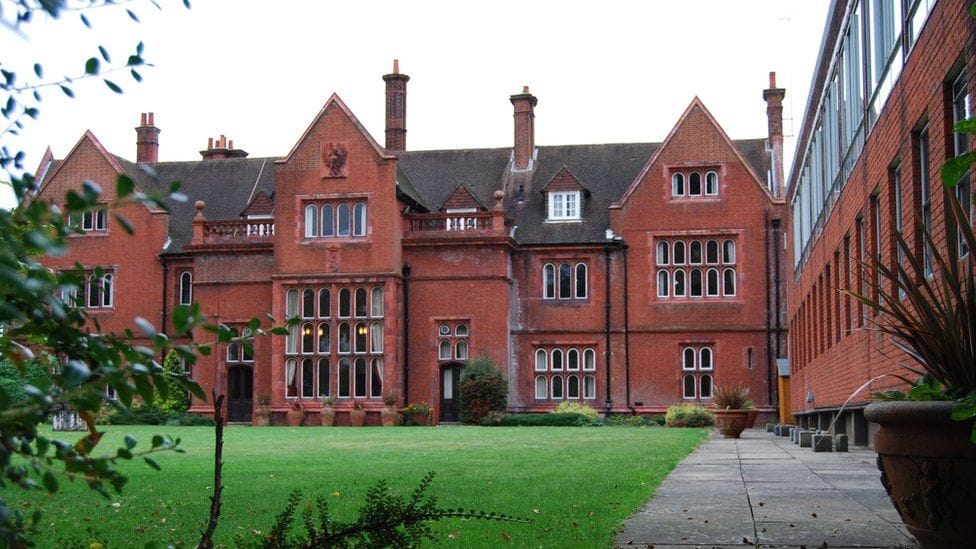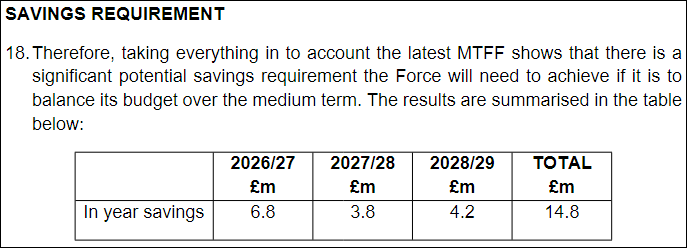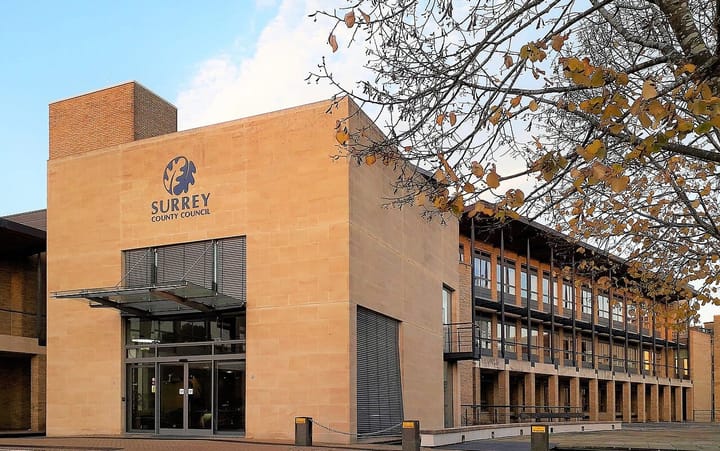Surrey Police face £15 million budget gap
Surrey Police are facing a budget shortfall of around £15 million within the next three years, even after an assumed £14 a year increase in council tax, according to papers set to come before the Surrey Police and Crime Panel.

Surrey Police are facing a budget shortfall of around £15 million within the next three years, even after an assumed £14 a year increase in council tax, according to papers set to come before the Surrey Police and Crime Panel.
The papers show that, due to a combination of staff pay rises and inflation, the police force is facing a total 'medium term' budget gap of £14.8 million over the next three financial years.
A financial forecast report warns that the force, which has a strength of 2,295 officers, faces a "significant potential savings requirement" to balance its budget, with the gap set to be met through a combination of "tactical reviews" of police services, increases in council tax and potential cuts to police staff. Alternatively, meeting the budget gap through raising the police's share of council tax could potentially add an extra £72 to the average council tax bill by 2028.

The financial forecast is set to be considered, alongside other issues, by local councillors on Surrey's Police and Crime Panel when it meets on 4th September to grill the elected Police and Crime Commissioner, Lisa Townsend (Conservative), on how she intends to deal with issues facing the force.
Worryingly for taxpayers, the report notes that the medium term financial forecast is based on an assumed £14 annual increase in council tax (for a typical Band D property) even before the budget gap is dealt with. The estimated annual increase is based on initial details of the upcoming Home Office 3-year funding settlement for the police, which assumes that Police and Crime Comissioners (PCCs) will increase their share of council tax by the "historical average".
The figures in the report mean that if the budget gap were to be met completely by increases in council tax (with a £2 increase raising £1 million for the police) then that would mean an additional £30 increase on council tax, on top of the assumed annual increase. This could mean a total increase in council tax bills of £72 by 2028.
"a reduction in employee numbers would be the normal approach to close the budget gap"
However, it is unlikely that the gap will need to be met entirely through council tax rises, as the report outlines plans to make savings through spending cuts, identifying that 80% of the police force's expenditure is on staff and saying that "a reduction in employee numbers would be the normal approach to close the budget gap".
Since the government has imposed financial penalties for any reduction in police officer numbers, any staff cuts would have to be to the 1,900 police staff, who provide back-office support for frontline officers. Savings could also be made through a reduction in spending on non-staff costs like buildings, forensics and IT, but the report says that these are expected to yield only limited savings.
Additionally, while the government's 3-year funding settlement is set to give Surrey Police an additional £21 million by 2028/29, larger than the budget shortfall, but this is expected to be offset by staff pay and other cost increases over the same period, leaving the budget gap essentially the same as when it started.
The government is also expected to be making grants to police forces, including Surrey, to meet Labour's pledge to recruit 13,000 more neighbourhood police officers, but the financial forecast does not take account of these grants on the basis that the money received will be cancelled out by the cost of employing more officers, resulting in no overall change in the force's financial position.
The only ray of sunshine in an otherwise very gloomy financial report is news that the police staff pension scheme (as opposed to the police officer pension scheme) is currently overfunded, meaning that employer pension contributions could soon be cut by 1%, saving Surrey Police £3.8 million.
We hope you like this article. It couldn't exist without the generosity of our subscribers. If you'd like to support our work, and if you can afford it, please consider using the button below to support high quality journalism for just £5 a month.
PCC faces grilling on annual report and police integrity
Lisa Townsend, the Conservative Police and Crime Commissioner (PCC) for Surrey is also expected to be grilled by the panel on her annual report and on progress in responding to an independent inspection which rated Surrey Police as 'requiring improvement' over vetting and officer standards of behaviour.
A report by HM Inspectorate of Constabulary was issued in October 2024, just a few months after Townsend's re-election as PCC in May, rated Surrey Police as 'good' for tackling potential police corruption but as 'requiring improvement' for police vetting and standards of behaviour. The force was issued with seven key 'areas of improvement' and had made a commitment to resolve all of them by the end of 2025.
In her update to the panel, Townsend is set to say that the force is on track to successfully address all of the issues raised by that deadline. In the meeting papers she reports that staff increases for the vetting unit have reduced the backlog from 509 personnel without the required vetting to 97 today, and improvements in time taken to handle and investigate complaints. However, the average time taken to investigate complaints within the force remains high at 303 days, compared to a national average of 220 days, and Townsend is likely to be questioned on these issues.
Townsend is also set to present the panel with various annual reports, in which she identifies her key successes in the past year as being extra patrols in anti-social behaviour hotspots, progress towards building a new eastern divisional HQ in Leatherhead, funding for the 'Safer Redhill' anti-crime initiative, new strategies for knife and retail crime, and funding for volunteers who inspect the way people are treated in police custody.
A common criticism of Townsend by Police and Crime Panel members has been that she has repeatedly increased the budget for her own office at a time of financial difficulties for Surrey Police, with criticism particularly centering on increases in the size of her communications team. Her annual report appears to be trying to pre-empt criticism on this topic, as it includes a lenghty section justifying previous council tax increases and emphasising that the budget for her office is 1% of the overall police and crime budget for Surrey.
The PCC's report also addresses the budget shortfall facing Surrey Police, and states that the force is looking at ways to close the gap which include more joint working and joint procurement with other bodies, closing police buildings, and using AI to "streamline processes and lower costs".
Considering the potential implications for council taxpayers if the budget gap isn't closed, Townsend is likely to be questioned extensively on this topic, especially given her historically testy exchanges with panel members.
Surrey Police and Crime Panel is set to meet at 10.30am on Thursday 4th September 2025. The meeting is expected to be webcast at the following link, where the reports and papers for the meeting can also be found: mycouncil.surreycc.gov.uk/mgChooseDocPack.aspx?ID=9563




Comments ()